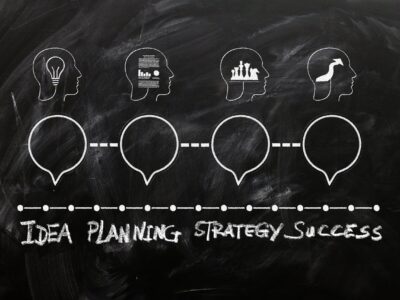What is Failure?
Failure is an inevitable part of life’s journey that touches us all. It manifests itself in various forms. It could be disappointing exam results, job rejections, or losses in competitions. Society often perceives failure as an undesirable outcome. It is an experience to avoid at any cost. But, the truth is that failure is not always a negative force. In fact, it is a much-needed element for achieving success. This article aims to delve into the advantages of failure and its indispensable role in achieving triumph.
Everyone and their mother has heard the story of Thomas Edison. The story goes that he tried and failed 10,000 times before discovering the light bulb. While it may not be actually 10,000 times. It just sounds like a cool number. We are sure he tried many many times. In Fact, rumor is that he said he did not fail but had found 10,000 ways that did not work. It was all about perspective. Each failure was a building block toward the discovery of the light bulb. You could argue that he may not have made the discovery without those failures. It is rare for discoveries in his field to be instant. It wasn’t like Isaac Newton’s discovery of gravity for example. Apparently, it only took one wallop from an apple to say Eureka! I found gravity. Of course, this was not the case. The apple might have been the catalyst but he had to experiment. It was after that experimentation that he came up with his laws of motion
Failure is a Teacher
Foremost, failure serves as a teacher. It imparts valuable lessons by highlighting what actions to avoid. It also casts light on areas for improvement. Following a setback, we naturally dissect the situation, discerning the missteps taken. Such analysis enables us to learn from our errors. This provides us with the knowledge necessary for informed decision-making in future endeavors. We could use a baby for example. As a toddler you had to creep before you walked. You only learned to walk as a result of falling multiple times. After doing this your brain finally figured out how to maintain balance. This led you from failure to success.
Failure fosters resilience
Resilience represents the ability to bounce back from setbacks. It demonstrates perseverance and determination in the face of obstacles. Through failure, we cultivate the capacity to endure and persist despite adverse circumstances. This tenacity becomes a necessary trait for success. It empowers us to forge ahead even when confronted with challenging situations. Additionally, failure nurtures a growth mindset. It fosters the belief that you can hone intelligence and abilities. You do this through diligence, dedication, unwavering perseverance and most importantly taking action.
Failure nurtures creativity and innovation.
When confronted with failure, you are compelled to think outside the box. You then explore novel and imaginative solutions. Failure unlocks the mind. We can use the example of people who grew up with adversities vs someone born with a gold spoon in their mouth. One builds resilience through constant resistance and friction in their life. With the right mindset, they develop intangible qualities such as mental strength. They learn how to deal with adversity better because they experience it every day. In contrast, the person who gets pampered gets dumbfounded when met with resistance. An example of someone who was born in poverty and great adversity was Andrew Carnegie. He was born to a poor Scottish family. Worked in a cotton factory to start out and was making $1.20 per week. Fell into debt and went through many more adversities. Every adversity made him more resilient. He ended up revolutionizing the steel industry. Today his name is synonymous with wealth, motivation, and perseverance. Some of the richest people in the world today were failures. They did not go from failure to success overnight, remember that.
Failure cultivates humility
There is a saying in the bible; “He that exalted himself shall be abased and he that humbles himself shall be exalted“. Failure is a humbling experience. Failing necessitates the acknowledgment of personal shortcomings and weaknesses. This acknowledgment fuels the development of humility. It provides a realistic view of yourself. Moreover, it instills an appreciation for the efforts of others who have supported us along the way. Humility although not necessary to achieve success. It is a key component in keeping success. It is an attribute for success that anchors you to your goals and keeps you grounded.
Failure fosters empathy and compassion
Another advantage of failure lies in its capacity to foster empathy and compassion. Personal failure imbues individuals with a deep understanding of two emotions. Those emotions are disappointment and frustration. This firsthand comprehension allows for the development of empathy and compassion. This happens especially to others facing similar challenges. These qualities, in turn, contribute to success. It does this by building strong relationships and facilitating effective leadership.
Failure also nurtures courage within individuals. Confronting failure requires individuals to face their fears head-on and take risks. Such acts demand considerable courage, a trait indispensable for success. Courage propels individuals to undertake calculated risks, exhibit boldness, and pursue their aspirations. They can do this undeterred by the fear of failure. Without courage, individuals may struggle to take the necessary risks vital to achieving success.
Failure imparts a sense of urgency.
It serves as a reminder of the preciousness of time. It also highlights the necessity for swift action in correcting mistakes. This urgency aids individuals in realizing goals. It acts as a motivator, ensuring that individuals remain focused and driven.
Failure promotes self-awareness
In the face of failure, you are compelled to introspect. You examine your thoughts, emotions, and actions. This self-reflection fosters self-awareness. It provides individuals with a comprehensive understanding of their strengths and weaknesses. Such self-awareness stands as a vital attribute for success. It enables individuals to make informed decisions. It helps you to manage your emotions, and cultivate harmonious interpersonal relationships.
Conclusion
In conclusion, failure should not be regarded solely as a negative experience but rather a stepping stone toward success. It is through failure that we acquire invaluable lessons. It develops resilience, creativity, humility, empathy, courage, a sense of urgency, and self-awareness. Failure offers us opportunities to learn. It makes us grow, and evolve into better versions of ourselves. Instead of fearing failure, we should embrace it. Extract wisdom from it, and use it as rocket fuel to reach our goals.
As exemplified by the legendary basketball player Michael Jordan, who once said, “I’ve missed more than 9,000 shots in my career. I’ve lost almost 300 games. Twenty-six times I’ve been trusted to take the game-winning shot and missed. I’ve failed over and over and over again in my life. And that is why I succeed.” Jordan’s words encapsulate the essence of failure as a catalyst for eventual triumph.
From Failure to Success: Shifting your perspective
Shift your perspective on failure. Acknowledge its inherent power to teach, strengthen, and inspire. Embrace failure as an indispensable companion on the path to success. Embrace failure as a stepping stone toward personal growth and achievement. Remember that every setback is an opportunity in disguise. It is waiting to be seized and transformed into a springboard for greatness. Let us rise above the fear of failure and embark on our journey with a winning mindset.
If you would like to read our post on how to find your passion in life, click here. You may also want to consider joining our email list right here. See you next post.














Comments